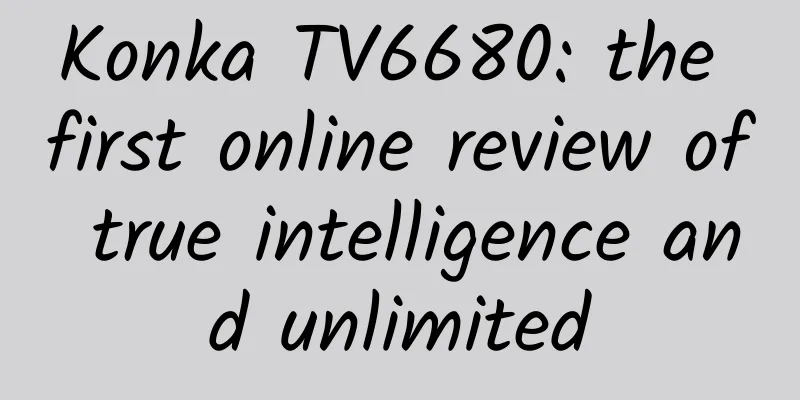Shopping and short video apps, why can they always guess your favorites?

|
Have you ever experienced the pleasure of shopping and the feeling of continuing to shop to get more satisfaction? There is no way, the e-commerce platform always pushes things I like to me, I can’t help it! In this world, besides the people around you who know your preferences very well, there is also something that knows your preferences very well - the recommendation algorithm. #1Your preferences can be calculated Can a person's preferences really be calculated? The answer is yes! Image source: Pixabay Have you ever used Douyin? As the most popular short video product nowadays, Douyin has ushered in a new era of intelligent recommendation algorithms (using user behavior and mathematical algorithms to infer what users may like). Many people can't stop using Douyin because the videos it recommends make people want to keep watching. Why are Douyin's recommendations so accurate? Because when you watch short videos, it will understand and count your viewing habits by counting the length of time you watch different videos, whether you have finished watching them, whether you like, collect, and follow them, and recommend more videos of the same type to you; it will also use big data to push videos that users with similar preferences to you like to you. Douyin has created a product that netizens around the world can't put down through its recommendation algorithm. Many people use "can't stop watching" to describe the addictive magic of Douyin. #2 How much do you know about algorithms? From a practical perspective, whether you like it or not, recommendation algorithms have penetrated into every aspect of our lives. WeChat and Taobao are using similar algorithms to recommend content and products to us. Applying similar algorithms can obviously bring more economic benefits to these companies. Since the things recommended by algorithms make us addicted, do algorithms understand us? It depends on how you define "understand". For example. Some time ago, I downloaded Xiao×shu to buy gifts for my friends. I wanted to use it to search for real reviews of some popular products to see if they were worth buying. As soon as I logged in, Xiao×shu asked about my hobbies and interests. As a straight man and a popular science worker, I naturally chose sports, social sciences, technology, and other fields related to my work and interests, and then the homepage of Xiao×shu recommended these contents to me. I casually browsed and found that I was not very interested in the recommended content, so I slipped away from the homepage to search for reviews of a few gifts I was going to buy, and then closed it. A few days later, I had nothing to do, so I logged into Xiao×shu again, and this time I just casually browsed the content on the homepage. Because Xiao×shu has a lot of content about food, and beautiful things are always pleasing to the eye, so as a foodie, I was fascinated by all kinds of food... Later, when I browsed Xiao×shu again, I found that there were obviously more and more food videos, while the content I checked, such as sports, science, and technology, basically did not appear. I realized that Xiao×shu has learned my browsing habits and discovered my deep love for food. So, for Xiao×shu's algorithm, it is not important what I think I like, but what I actually like to read. This is the essence of the recommendation algorithm. Image source: Pixabay #3 Low-level needs vs. high-level needs So, why does Xiao×shu always recommend food content and ignore the preferences I checked at the beginning? In fact, we can make a simple classification of human preferences. One is "low-level needs", such as food, handsome men and beautiful women, etc., which reflect your biological instincts more; the other is "high-level needs", such as learning knowledge, which satisfies your curiosity and desire for exploration, as well as the pursuit of achievement and power (such as the options I checked). However, the latter is difficult to identify through machines. At least the recommendation algorithm in this regard is not successful at present. Machines cannot simulate the "Aha, so that's it!" moment when humans learn knowledge, but often require us to search by keywords ourselves. #4 Social Recommendation In fact, there is another system for recommending content in reality, which is social recommendation through likes from friends. The logic behind it is that the content liked by friends should be the content that impresses him and makes him approve. Especially in the social circle of acquaintances, when we realize that the content we like will also be seen by others, we tend to recommend to others things that reflect his own taste, pursuit and personality. Therefore, if there are many intellectuals in your circle of friends, you will definitely be able to see a lot of content that contains knowledge, thinking, wisdom and philosophy. In other words, this kind of recommendation relationship first ensures the quality of the content and its circle attributes through "real person review". On the other hand, because you care about a few friends, the information about the content they like will encourage you to consume content. If you find that your crush likes a piece of content, you will also want to know what the content is about, right? This kind of social recommendation engine is actually the logic used by many early Internet products, and it has also created many popular Internet products. If you have paid attention to WeChat Video Account, you will find that it is an Internet product that uses a social recommendation engine. Although WeChat Video Account is still popular today, its views and duration are far less than Douyin. #5 Get rid of the control of algorithms Why, then, do algorithms that learn and exploit our “low-level needs” dominate the market today, while social recommendations have been relegated to a corner? In fact, there are many reasons. For example, in this society, the number of people who pursue knowledge and are full of curiosity is far less than the number of people who are bored and need to kill time. Another example is that the difficulty of producing content that requires deep thinking is much higher than the difficulty of producing shallow entertainment content. Another example is that it is increasingly difficult for people to squeeze out half an hour or even 10 minutes to read an article carefully, but they can easily take out 15 seconds... Therefore, algorithm recommendations will inevitably be biased towards the mainstream. However, we don’t have to commit ourselves completely to algorithms, let alone immerse ourselves in our own low-level needs. Although low-level needs bring happiness, they are not everything in life. There are higher-level pleasures and pursuits in life that are beyond the calculation of algorithms, and we need to obtain them from books and friends. So, if you want to break away from the control of the algorithm, you can start by recommending good books you have read to your friends. Perhaps some people are very interested in what you recommend and are willing to exchange their life experiences. Contributor: Chongqing Science and Technology Museum Author: Cheng Yinan, senior user researcher at an Internet company Review experts: Huang He, Li Chunli, Chen Tao, Xu Xiaoping Statement: Except for original content and special notes, some pictures are from the Internet. They are not for commercial purposes and are only used as popular science materials. The copyright belongs to the original authors. If there is any infringement, please contact us to delete them. |
<<: Vegetarianism: Healthy or dangerous? One chart to understand!
>>: The tiny rockhopper penguin is the brightest rock star
Recommend
What determines the taste and appearance of peaches? It took us 14 years to figure it out
"Ten years of exploring the secrets of peach...
Several tips to improve Android ListView performance
Translator’s Note: 1. Since this is a technical a...
Whatever you talk about, we will push you the same thing! How to prevent mobile apps from "eavesdropping"?
"When I talked to my friends about wanting t...
How to promote the education industry? The key points of daily operations and promotion rhythm have been marked for you!
In the education industry, the era of "let&#...
CocoaChina Theme Essay Contest Let's talk about my 2014
In the year 2014, which is about to pass, Apple s...
Weird hypothermia: from agitation to hallucinations
Nowadays, the climate in many parts of the world ...
A complete guide to ToB product operation and promotion
Product promotion can be divided into new functio...
What is the international version of the health code? What is the specific use? How to apply? Attached is the application process!
What is the international version of the health c...
The TV industry is facing a "gateway war". Can the concept of resonance bring about a new wave?
In the Internet age, whoever can control the entr...
The Glory and Stupidity of the Three-Star Dynasty
In the past 2016, Samsung was in a quagmire. The ...
Baidu bidding promotion - keyword lowest CPC bidding strategy
The core of measuring search marketing is ROI. CP...
Five important factors to improve the quality of mobile application development
[51CTO.com Quick Translation] Are you planning to...
How much does it cost to customize a small business program in Qiandongnan?
In order to better penetrate into various industr...
Copying 100 companies? What are Xiaomi's limitations?
Two and a half years ago, I wrote an article titl...
The common coconut tree is not the "indigenous" of Hainan.
If you ask what the most common tree in Hainan is...









